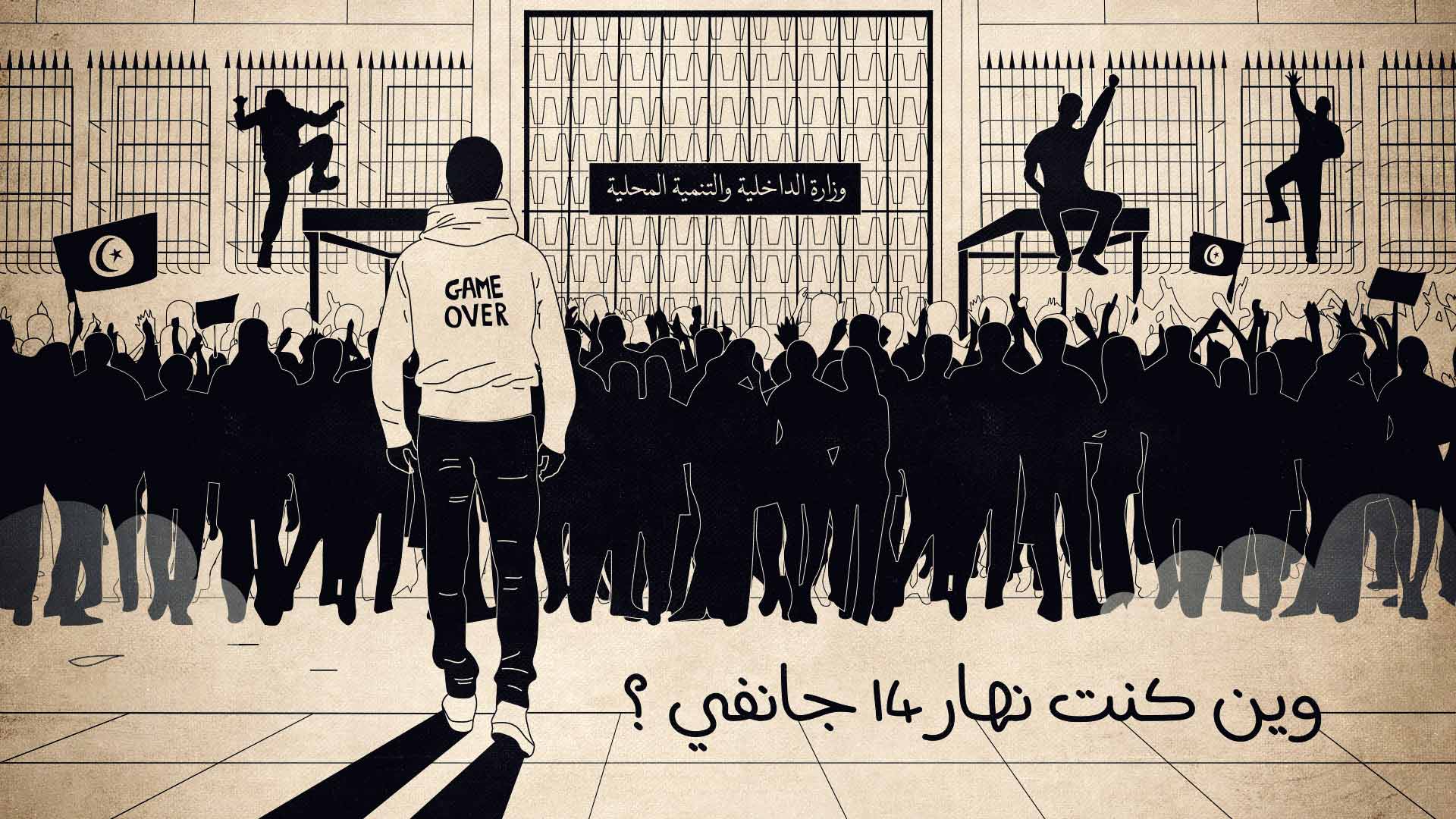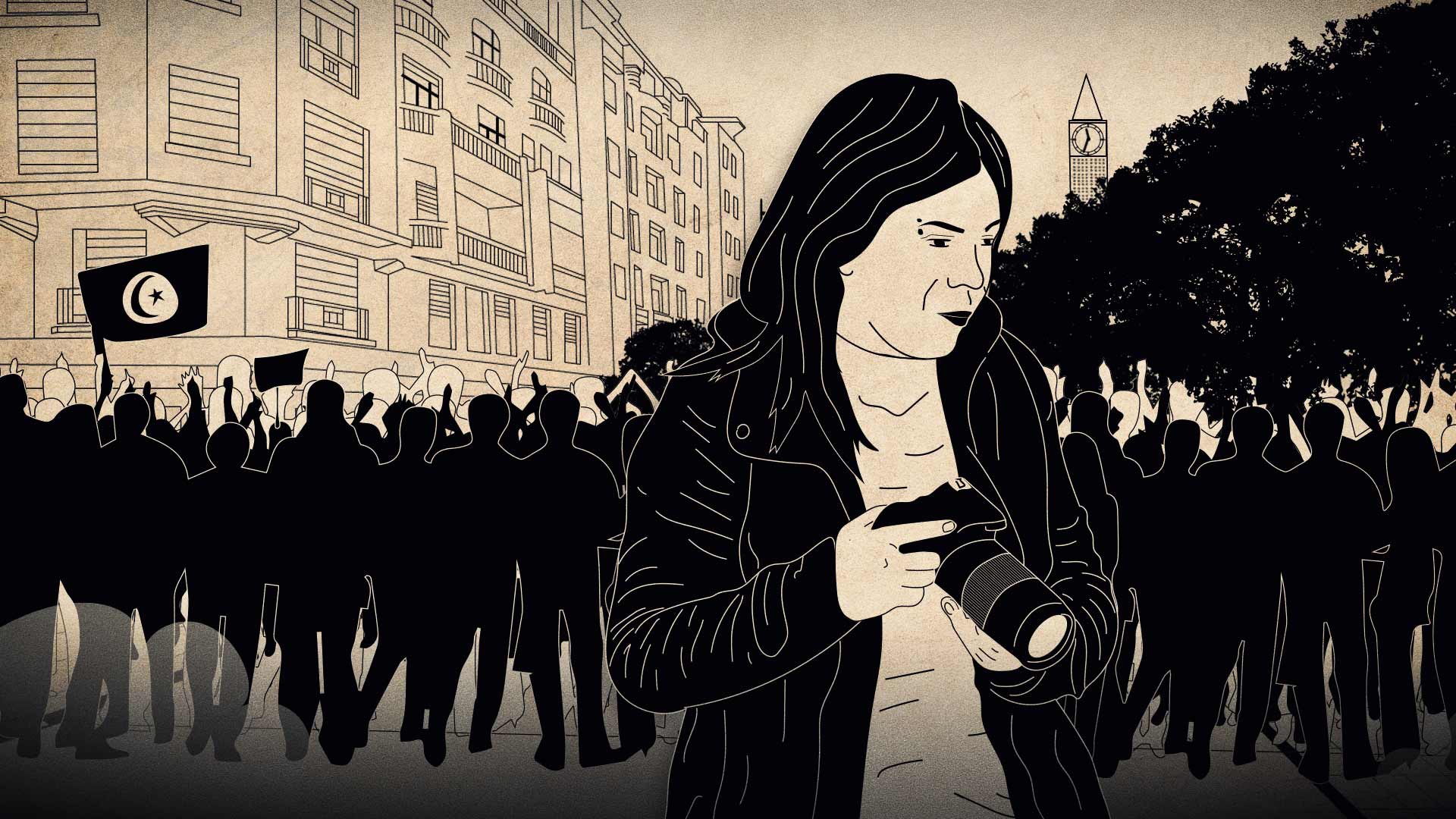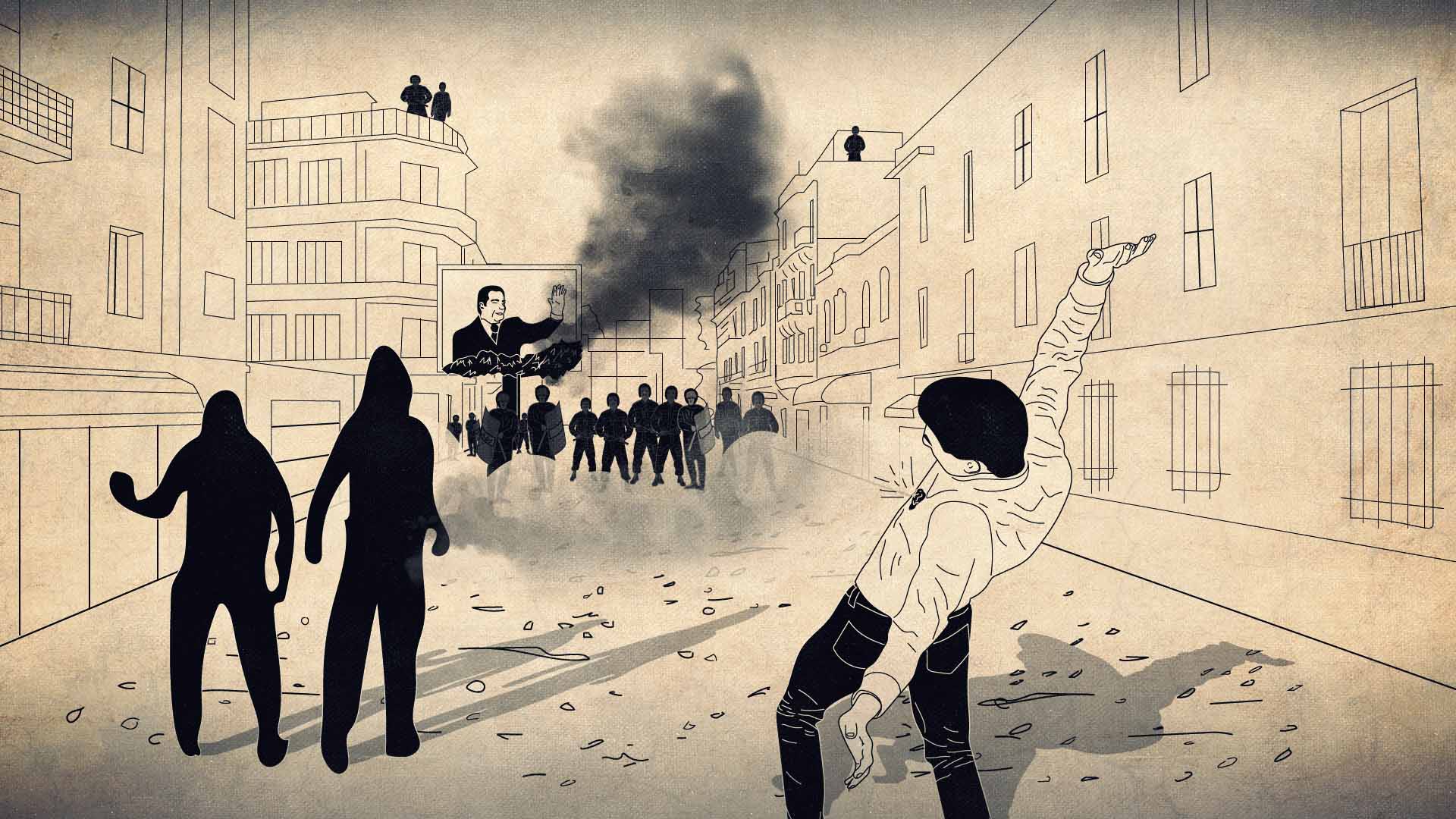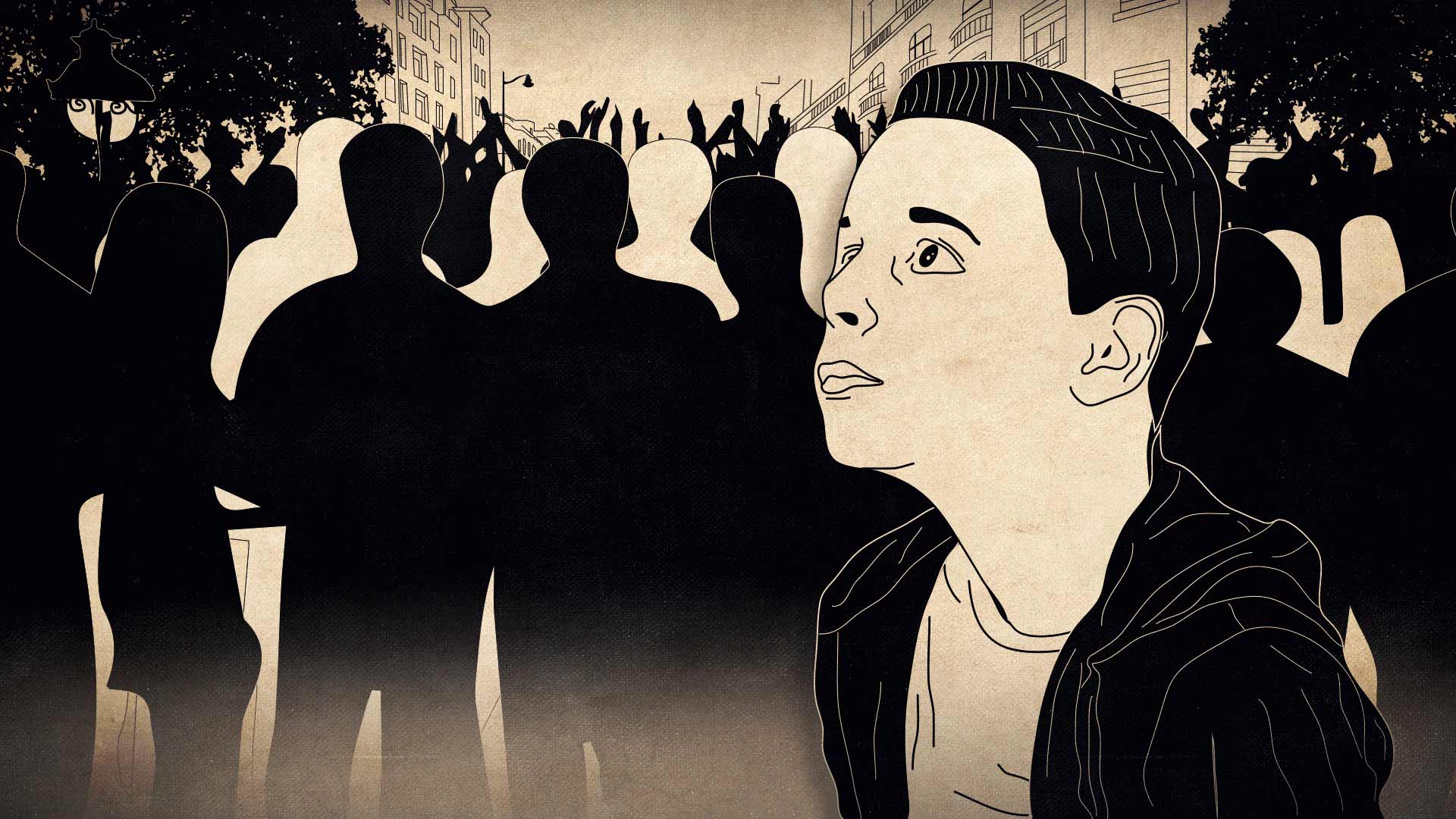| EPISODE 5
Open Doors
Created by
Inkyfada Podcast
Directing
Bochra Triki, Monia Ben Hamadi
Music, editing, sound design & mixing
Oussema Gaidi
Voice over
Bochra Triki
Subtitles
Roua Khlifi, Yasmin Houamed
Illustration
Marwen Ben Mustapha
With the collaboration of
Yassine Kawana
On January 14, 2011, trade unionist and feminist activist Bakhta El Cadhi and her daughter Haifa Jmour joined the thousands of demonstrators who took to the streets in the city centre. As police violence broke out on Mohamed Ali Square, they got separated by the crowd and suddenly found themselves seeking refuge in different apartments.
They would go on to have two very different experiences of these exceptional circumstances. Bakhta took refuge in the home of a family that was not very political, but who were welcoming and kind to her. The atmosphere there was relaxed, and open to having discussions and exchanging ideas.
The situation for Haifa on the other hand was very tense. Police officers forcefully broke into the apartment where she was seeking refuge with two of her friends. They dragged the women out and beat them with batons on the stairs, whilst the men who were forced to stay inside were physically abused.
Despite the chaos of the situation, Haifa managed to make her way home while Bakhta spent the night with the family that had taken her in, as she could not leave due to the curfew. The two women managed to call each other to reassure one another that they were safe.
The contrasting experiences of mother and daughter are juxtaposed: one in safety, the other in perpetual danger.
Haifa, who had experienced the intimidations of the old regime through her activist parents, admits a certain bitterness about the dictator's escape. Like many other Tunisians, she would have preferred to see him tried and sentenced.
Both women look back on this time with nostalgia and a sense of gratitude to have been able to experience both the euphoria and the unrest of that fateful day.
Where were you on January 14th ?
Latest episodes
| EPISODE 13
In Lina's Footsteps | Special Episode
| EPISODE 12
A Bullet Straight to the Heart
| EPISODE 11
A Child's Gaze
ABOUT
Inkyfada Podcast is the first platform entirely dedicated to original Tunisian podcasts, and was conceived by Inkyfada media in collaboration with the in-house research and development laboratory, InkyLab. Inkyfada joined the global podcast boom in 2017, when the team produced the first Tunisian audio documentary, diving deep into the belly of the El Kamour struggle taking place in the desert. Since then, Inkyfada Podcast has produced a wide variety of documentaries, investigations, and podcast series, as well as articles accompanied by music; covering a multitude of contemporary issues in order to offer an immersive and alternative podcast experience. Whilst exclusively offering audio content, the Inkyfada Podcast team upholds the same core values and principles of inkyfada.com, and is committed to producing high quality content though a dynamic and meticulous production process. In addition to the permanent team, Inkyfada podcast works closely with various journalists, artists, illustrators, musicians and other content creators in order to diversify the platform and support artistic creativity. These podcasts differ from traditional radiophonic content in that the applied production and editing process is more akin to cinematographic techniques, in addition to being web-based, downloadable and accessible on demand. Additionally, Inkyfada Podcast uniquely offers subtitles in French, Arabic and English for all audio content, the majority of which is recorded in Tunisian or in the preferred language of the speaker in question.







